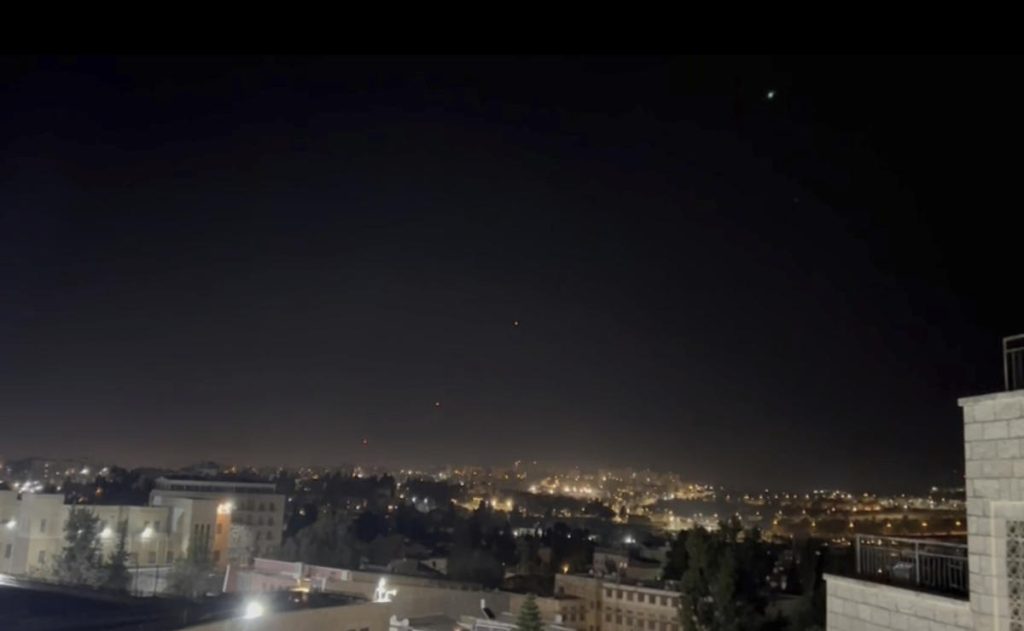Iran launched a significant military attack against Israel, firing hundreds of drones, ballistic missiles, and cruise missiles in retaliation for a suspected Israeli airstrike in Syria that killed two Iranian generals. The attack was unprecedented and resulted in air raid sirens and explosions across Israel. Although the majority of the missiles and drones were intercepted, some managed to reach Israeli territory, causing minor damage. President Joe Biden confirmed that U.S. forces assisted in intercepting the incoming threats and pledged to work with allies to develop a unified response.
The Iranian assault on Israel marked the first direct military action undertaken by Iran against Israel, despite years of tension and hostility between the two countries. The United Nations, France, Britain, and Germany all condemned the attack, with many warning of the potential for further escalation in the region. Israel’s military response remains unclear, but statements from Israeli officials suggest that they will take necessary measures to protect the country’s security. The incident is ongoing, with numerous Israeli warplanes still patrolling the skies.
Israel’s air defense systems, including the Arrow system designed to shoot down ballistic missiles, were put to the test during the attack. The U.S. military deployed additional aircraft and ballistic missile defense destroyers to support Israel in countering the threats. The engagement involved intercepting dozens of missiles and unmanned aerial vehicles (UAVs) launched from various locations including Iran, Iraq, Syria, and Yemen. The successful interception of the majority of the incoming drones and missiles prevented widespread damage and casualties in Israel.
The conflict between Iran and Israel has been escalating for months, exacerbated by Israel’s ongoing conflict with Hamas militants in Gaza and Hezbollah’s attacks on Israel’s northern border. Iranian-backed groups in Lebanon, Iraq, Syria, and Yemen have also targeted Israel with rockets and missiles, contributing to the regional tension. The recent attack by Iran underscores the growing complexity of the situation in the Middle East and the potential for further conflict between various factions and countries in the region.
Following the attack, tensions were heightened across the Middle East, with reports of airstrikes in Lebanon, missile interceptions in Jordan, and demonstrations in support of the attack in Iran. The Israeli government issued warnings to those who threaten or harm the country, emphasizing their commitment to defending Israel’s security. President Biden reaffirmed the U.S.’s support for Israel’s security while also working to avoid further escalation in the region. The situation remains fluid, with ongoing military engagements and the potential for further developments.
The attack by Iran on Israel, and the subsequent response from both sides, highlights the complex geopolitical dynamics in the Middle East and the significant military capabilities possessed by various countries and factions in the region. The involvement of the U.S. and other allies underscores the interconnected nature of security challenges in the Middle East and the need for coordinated responses to prevent further escalation. As the situation continues to evolve, diplomatic efforts, military preparedness, and regional cooperation will be critical in managing the aftermath of the attack and maintaining stability in the region.


